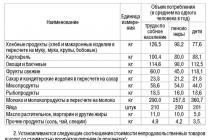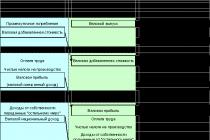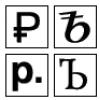Denis Morozov, former chairman of the board of Ogni Moskvy bank, who was involved in the case of embezzlement of 7.5 billion rubles from this financial institution died under arrest at the age of 42. This was reported to RBC by three sources familiar with the investigation of the criminal case, and also confirmed by two acquaintances of top managers.
According to one of Morozov's relatives, he died on May 12. According to RBC, on February 19, the person involved in the case was taken to the Botkin hospital from SIZO N4 with acute cerebrovascular accident. Soon he fell into a coma and never regained consciousness. Morozov suffered from a hereditary disease associated with blood clotting - von Willebrand-Dian disease.
It is noted that this disease is not on the list of diagnoses that prevent detention. Patients suffering from von Willebrand-Dian disease periodically require the introduction of plasma preparations. According to the source, during his detention in the pre-trial detention center, Morozov never received a blood transfusion.
The press service of the Moscow City Court reported that Morozov repeatedly asked to be released from the detention center and filed complaints to extend the arrest, but he was denied satisfaction. In the Office of the Federal Penitentiary Service in Moscow, RBC was told that they did not know anything about Morozov's death. The department noted that the man could be in the hospital without an escort and “not be listed in the isolation ward.”
In May 2014, the Ogni Moskvy bank was deprived of its license and soon declared bankrupt. In 2015, at the request of the Deposit Insurance Agency, a criminal case was opened against the bank's managers.
According to investigators, the defendants falsified documents on the termination of contracts with clients, and transferred money from clients' accounts to controlled companies. In April 2016, the newspaper "Kommersant" wrote that such a scheme of work of the accounting department operated in the bank long before Morozov came to the leadership.
Eight people are currently involved in the case. Morozov was charged with two episodes of fraud (part 4 of article 159 of the Criminal Code), one episode of misappropriation or embezzlement (part 4 of article 160 of the Criminal Code) and the organization of a criminal community (art. 210 of the Criminal Code). He admitted his guilt in part.
In the case at the investigation stage, they were allocated to separate production materials regarding the alleged organizer of the theft - ex-president of the bank Maria Roslyak, daughter of the auditor Accounts Chamber, former senator of the Federation Council and Deputy Mayor of Moscow for Economics Yuri Roslyak. The defendant pleaded not guilty.
In February 2016, the court in a special order sentenced Roslyak to four years in prison. However, the woman will go to the colony only after 14 years. The fact is that at the time of the sentencing, she was pregnant, and the court allowed her to be punished when her youngest child reached the age of legal capacity.
Denis Morozov, suspected of embezzling 7.5 billion rubles, has repeatedly complained about poor health.
Denis Morozov, former chairman of the board of Ogni Moskvy Bank, suspected of embezzling 7.5 billion rubles, died under arrest. It is reported by RBC.
Morozov died on May 12 in the intensive care unit of the city clinical hospital. S.P. Botkin, where he was taken from the pre-trial detention center. His colleague said that the banker died at the age of 42; he left three children. The ex-head of Moscow Lights suffered from a rare hereditary disease - von Willebrand-Dian disease, which affects blood clotting. However, this disease is not a reason preventing detention. Such patients need constant administration of medicines containing plasma, however, during the entire stay in the pre-trial detention center, Morozov did not receive a single injection. In August last year, the banker underwent abdominal surgery, after which he was returned to the isolation ward, and in February of this year he was hospitalized with acute cerebrovascular accident. In the hospital, the banker fell into a coma and never regained consciousness.
While in the pre-trial detention center, Morozov repeatedly filed complaints about the extension of his arrest and asked to be released from the detention center for health reasons, but the Moscow City Court refused to do so.
The Botkin hospital refused to comment on the death of the ex-head of the bank, saying that they lacked authority. The Moscow department of the Federal Penitentiary Service reported that it did not know about the death of the detainee. In addition, the department added that if Morozov was in the hospital without an escort, then he could “not be listed in the isolation ward.”
According to the Criminal Procedure Code, those suspected of economic crimes should not be taken into custody. However, in individual cases some articles can be considered as a common crime, and then the person involved in the case ends up in a pre-trial detention center.
KB "Ogni Moskvy" was deprived of a license in May 2014, then declared bankrupt. In 2015, at the request of the Deposit Insurance Agency, a criminal case was initiated on embezzlement of funds. According to investigators, the defendants in the case from among the bank's managers fictitiously terminated contracts with clients, and their money was transferred to the accounts of controlled companies. At the same time, according to Kommersant, such methods were practiced in the bank long before the arrival of Morozov. The court imputed to him two episodes of especially large-scale fraud (part 4 of article 159 of the Criminal Code of the Russian Federation), one episode of embezzlement (part 4 of article 160 of the Criminal Code of the Russian Federation) and the creation of an organized crime group (Article 210 of the Criminal Code of the Russian Federation). Morozov admitted only part of the charges.
Materials concerning the organizer of the theft, the former president of the bank, Maria Roslyak, who is the daughter of the auditor of the Accounts Chamber, former senator of the Federation Council and Deputy Mayor of Moscow for Economics Yuri Roslyak, were allocated to a separate proceeding. Maria Roslyak pleaded guilty and was sentenced to 4 years in prison, suspended for 14 years. In connection with her pregnancy, the court allowed Roslyak to be punished after her child reached the age of legal capacity.
At the age of 43, the ex-head of the bank died without regaining consciousness “Lights of Moscow”. The banker suffered from a rare disease. According to his lawyer, he was not provided with the necessary medical care
42-year-old Denis Morozov, former head jar “Lights of Moscow”, died in the Botkin hospital. In winter, he was brought there from a pre-trial detention center with acute cerebrovascular accident. Morozov fell into a coma, from which he never came out. The banker suffered from a hereditary disease associated with blood clotting - von Willebrand-Dian disease. But he was not released House arrest.
Denis Morozov, it seems, was not the main figure in the schemes that the bank was involved in “Lights of Moscow”. A bank from the second hundred lost its license three years ago. Management is accused of embezzlement. The president of the financial institution, Maria Roslyak, the daughter of the auditor of the Accounts Chamber, former member of the Federation Council and Deputy Mayor of Moscow, Yuri Roslyak, fully admitted her guilt, but will go to the colony only after 14 years, since she was pregnant at the time of the verdict. And Denis Morozov, who held the position of the bank's chairman of the board, worked there for only about a year. As his lawyer says, "everything has already been stolen before him". In the pre-trial detention center, Morozov immediately expressed a desire to cooperate with the investigation and gave a confession, where he said that he was not the initiator of criminal transactions - the schemes worked long before he arrived. And he only put a final signature on some transactions. By the way, Morozov was not a friend or acquaintance of Maria Roslyak, he came to the bank on the recommendation of some third-party people from the Central Bank, the correspondent says "New newspaper" Andrey Sukhotin.
Andrey Sukhotin correspondent "New newspaper"“According to people who knew him, and even some of his comrades, he was a rather cheerful, such a cheerful person, but with one big problem - for some reason he loved the Lubyanka very much and constantly liked to hide behind her, without being authorized to do so. He could pronounce phrases from the series: "Yesterday, I went to the bathhouse with the director of the FSB". It was clear to people who understand the whole essence of the structure of the state that this could not happen. But even if it were, people don't talk about such things publicly. He built such a person out of himself with extensive connections in law enforcement agencies."
And although some other defendants received house arrest, Morozov ended up in Butyrka. He suffered from the rare von Willebrand disease. These are disorders of blood clotting, as in hemophilia. The disease is not included in the list of diagnoses for which it is forbidden to take into custody. But such patients require the introduction of plasma preparations. And Alena Zhemchugova, the banker's lawyer, says that he never had a blood transfusion in the detention center.
Alena Zhemchugova lawyer "In July last year, he had an intra-abdominal hemorrhage, which was due precisely to his genetic disease. He underwent an abdominal operation, they pumped 2.5 liters of blood. At that moment, we were considering extending the detention period for more than 12 months. However, the court extended our guards, then on February 17 he had a cerebral hemorrhage, he fell into a coma and, in principle, without leaving the coma, he died on May 12. He left three children under age, the youngest child is eight years old, he also two elderly parents.
So far, there are few comments from the Federal Penitentiary Service, they said that Morozov was transferred under house arrest on March 9. True, at that time the former banker had been in a coma for two weeks. To what extent his illness is generally compatible with detention, outside doctors cannot assess without seeing a full diagnosis. But it cannot be that he was not given a blood transfusion in the pre-trial detention center, says Vladimir Zorenko, head of the orthopedic department of the hematology center of the Russian Academy of Medical Sciences.
Vladimir Zorenko Head of the Orthopedic Department of the Hematology Center of the Russian Academy of Medical Sciences "It's out of the question. This can't happen in our country. Especially in Moscow. They bring us from under arrest, and with security, if necessary, they bring them. in any case, they bring it in. I think that something is not being said here".
Just a week before Morozov's death, Ombudsman Tatyana Moskalkova suggested to Vladimir Putin that the courts be required to release prisoners with serious illnesses. Now, according to her, less than half of such prisoners are released from custody. You can remember Nikita Belykh, who walks with a cane due to the fact that his leg is being taken away. He has diabetes, osteochondrosis, hernias, a brain disease was recently found, but he is not transferred under house arrest.
/ Tuesday, June 6, 2017 /Topics: Police The medicine

"I was shocked when I found out that he died without regaining consciousness"- Alena Zhemchugova told Business FM. Denis Morozov was accused of embezzling 7.5 billion rubles. He died before he was sentenced
Former head of the bank “Lights of Moscow”, accused of embezzling 7.5 billion rubles, did not live to see the verdict. 42-year-old Denis Morozov died in the Botkin hospital. . . . . . This disease is not on the list of diagnoses that prevent detention. But such patients periodically require the introduction of plasma preparations, and during the entire time in the pre-trial detention center Morozov has never had a blood transfusion, a source told RBC.
Case against bank management “Lights of Moscow” was launched two years ago. The banker's lawyer, Alena Zhemchugova, told Business FM that she tried to appeal his arrest many times:
Alena Zhemchugova Denis Morozov's lawyer "I submitted documents to the preliminary investigation authorities about the fact that he has a genetic disease, namely blood incoagulability, as well as hepatitis C and tuberculosis in a silent form, that is, he could not be detained. However, the court arrested him, and in July last year he suffered a sharp deterioration in his health.Repeatedly, when extending the period of detention, I filed motions to change the preventive measure, provided medical documents that he needed to take drugs related to blood plasma transfusion, however, we were denied. . . . . . In a serious condition at night, he disappeared from “ Butyrki ”, I was looking for him, at night he was taken to the pre-trial detention center “Sailor silence” , where they could not provide him with medical assistance, and he was again returned to pre-trial detention center No. 2, “ Butyrka", then on “ ambulance" was sent to the 20th city hospital. . . . . . The condition was very difficult. . . . . . However, despite the medical documents, despite the fact that I provided evidence and, in principle, the preliminary investigation authorities did not hide the fact about his state of health, the court extended our detention for more than 12 months. I complained to the Federal Penitentiary Service of Russia, the Federal Penitentiary Service of Moscow, the Investigative Committee about bringing to justice those who did not provide proper assistance. Approximately two weeks later, he was discharged from the 20th city hospital, and the stitches were removed, unfortunately, in the pre-trial detention center. Then, on February 17, he had a cerebral hemorrhage, he fell into a coma. At this time, a criminal case was considered in parallel in the Basmanny Court on recognition of guilt, and, without leaving a coma, on May 12, he died. Everyone knew that he had a disease, everyone knew that a transfusion was needed, I wrote repeated complaints to all levels, asked for a medical examination, everything was denied. . . . . . It was a shock to me when I found out that he died without regaining consciousness."
The Moscow department of the Federal Penitentiary Service for Moscow reported that Denis Morozov was transferred from the pre-trial detention center to house arrest in March. But judging by what the lawyer says, at that moment Morozov was already in a coma.
Bank “Lights of Moscow” was stripped of his license in 2014. According to investigators, leaders credit institution falsified documents on the termination of contracts with clients, and money from clients' accounts was transferred to controlled companies. As wrote "Kommersant", such "double bookkeeping" operated in the bank long before it was headed by Morozov. Morozov was charged with two episodes of fraud, one episode of misappropriation or embezzlement, and the organization of a criminal community. He partly admitted his guilt.
On December 24, 2015, the Main Investigation Department (GSU) of the Main Directorate of the Ministry of Internal Affairs of the Russian Federation for Moscow filed a final charge against the former management of the Ogni Moskvy bank of embezzlement of funds from a credit institution in the total amount of more than 7 billion rubles (a copy of the decision is in the editorial office).
Let me remind you that several criminal cases were in the production of the GSU at once: illegal write-off of depositors' funds, embezzlement when issuing fictitious loans, as well as theft of money from the deposit of the Cypriot company Proford Investments Limited, businessman Elchin Shakhbazov.
The initiation of these cases in 2014-2015 became possible thanks to our publications and appeals to the top leadership of the Ministry of Internal Affairs of the Russian Federation
In the summer of 2015, GSU investigator Irina Zineeva detained the former chairman of the board of the bank Denis Morozov, ex-member of the board Anna Velmakina, as well as managers Irina Ionkina and Grigory Zhdanov. The ex-deputy chairman of the board of the bank Vadim Khalangot and financial director Alexander Bashmakov were arrested in absentia by the decision of the Tverskoy District Court of Moscow in December 2015.
A strange story came out with Bashmakov. He spent about two years abroad, but at the end of last week he unexpectedly returned to Russia, and right at the Sheremetyevo airport he was detained, and then placed in the Butyrka pre-trial detention center.
Thus, two defendants remained at large - the daughter of the auditor of the Accounts Chamber Yuri Roslyak, Maria Roslyak, who concluded a pre-trial agreement and testified against other accused, and her partner Vadim Khalangot.
The reasons for the collapse of the bank, the participation in his life of the former vice-mayor of Moscow Yuri Roslyak, as well as the testimony of Maria Roslyak, were discussed in an interview with Novaya Gazeta by Vadim HALANGOT, who is currently in Germany.
- When and why did you leave Russia?
I left the country in July 2015. For last year I regularly appeared to the investigator, participated in all investigative actions. And all this time, with the permission of the investigator, I left for Germany, where my two underage disabled children live. In mid-July 2015, in compliance with the agreements with the investigation, I filed another petition to leave for Germany for several days, although I could not do this, since I was in the status of a witness. There I had to resolve a number of urgent issues with the children and see a doctor, since since March 2015 I have progressive kidney failure. Having received a refusal, I still went to Germany. A few days after my arrival, I ended up in the hospital, where I was prescribed kidney replacement therapy. Thus, since August 13, 2015, I have been on regular hemodialysis.
- You do not plan to return to Russia?
I realized that in this criminal case there was a significant turnaround, the purpose of which was not to establish the truth, but to shield Maria Roslyak. After I notified the investigation of the impossibility of returning to Russia, it was as if they forgot about me. And they “remembered” shortly before the trial, at which they made a decision on my arrest in absentia. I do not intend to return to Russia, because I fear not just for freedom, but for life.
For me, returning is a death sentence, since no one will treat me in a pre-trial detention center or in a correctional colony. But I am ready to help the investigation: there are a number of ways to obtain evidence, up to conducting interrogations on the territory of another state.
On May 16, 2014, the license of the Central Bank was revoked from the bank. By that time, together with Roslyak, you had led the Moscow Lights for about 6 years. During this time, there were situations that could lead to the revocation of the license from the bank?
In fairness, it should be noted that during the last 9 months before the revocation of the license, the bank was mainly managed by other people, who in August 2013 were transferred 51% of the shares in the authorized capital of the bank. And so the bank throughout its history has repeatedly faced the problem of liquidity. For example, in the fall of 2008, when Maria Roslyak was the chairman of the board of Moscow Lights, and her father, Yuri Vitalyevich Roslyak, was the deputy mayor of the capital. At that time, we served clients of the second or third hand, and only one large one - Mosvodokanal - placed deposits. The situation in the fall of 2008 was aggravated by the fact that the country's economy entered another crisis, and panic among the clientele increased. And this is always associated with an increase in the volume of debiting funds from the settlement accounts of customers, closing limits on interbank market borrowings and, as a result, liquidity problems. But in our country, thanks to the presence of a certain number of subordinate enterprises that did not succumb to panic and did not massively write off funds from their accounts or terminate deposits, the situation leveled off within two to three weeks, liquidity problems were resolved. All these events took place against the backdrop of an intensified conflict between the bank's participants, as a result of which the shares of one of the old participants were bought out by Maria Roslyak. I took the side of Maria Roslyak in that conflict, which I deeply regret in the light of recent events.
- Good. Did you overcome the crisis of 2008 - and worked normally for 6 years?
No. In the spring of 2011, liquidity problems arose again. The bank was on the verge of shutting down. Negotiations were held with different groups investors to inject additional cash. With one of these investors, banker Mikhail Levitsky, certain agreements were reached. A team of its managers was sent to the bank. It was also assumed that all shares controlled by us (slightly more than 90%) would be transferred to companies controlled by Levitsky. But the deals did not take place, and after a while, thanks to the hard work of new managers led by the chairman of the board, Alexei Nikolaenko, the bank managed to return the funds provided in the form of interbank loans to investors and equalize the standards. It was at that time that a course was taken to attract funds to the bank individuals. Everything would have been fine, but by the fall of 2012, another problem arose in the bank related to the concentration of credit risk.
One of the "golden rules" of the banking business was violated, which says: "It is better to have 100 loans for 1 million rubles than one for 100 million." There was a concentration of the loan portfolio in a certain group of borrowers.
- What is this group?
This is a group of companies controlled by businessman Sergei Degtyarev (currently in custody on charges of embezzlement during the construction of a road to the Vostochny cosmodrome - A.S.). This is a client whose service Maria Roslyak supervised personally. By the fall of 2013, his companies had practically stopped servicing their loans, the volume of which at that time exceeded 4 billion rubles. It was these nonperforming loans, I think, that caused the collapse of the bank in the first place.
- Why did you lend to this borrower if he was in arrears?
Because it was a client of Maria Roslyak. Back in the fall of 2012, she was very carefully told at dinner: “Maria Yuryevna, the volume of loans to Degtyarev’s companies reached 2 billion rubles. Given that the loans are unsecured, is it time for us to stop lending to this borrower?” Roslyak waved it off: "Find me another such client, and we will lend to him." Thus, the "priorities" were set, and the bank continued lending to Degtyarev's companies. These and other loans to Roslyak's clients were not discussed for a particularly long time.
In her testimony, Roslyak stated that “the bank issued unsecured loans in the amount of about 9 billion rubles,” which she learned shortly before the license was revoked. So she knew these loans were inherently fictitious?
Listen, Maria Roslyak was the main person in the bank. Roslyak knew about all the loans, since not a single loan was issued without her consent, and sometimes insistent instructions.
Pre-approval of loans very often took place over lunch, voting by members of the credit committee was carried out by e-mail. Sometimes the meetings were held in person, sometimes one call from Roslyak was enough to issue a loan to her client.
According to Roslyak's testimony, she was also not aware of the bank's scheme for illegally debiting depositors' funds, which allowed her to maintain the status of a witness in this episode.
She knew everything very well. All this was repeatedly discussed both at meetings and at dinner. Once again I repeat: her word in the bank was the last. And writing off clients' money was tested back in 2012, after the bank received the first strict instruction from the Central Bank, which limited the amount of deposits of individuals and the number of their accounts. At first, this problem was smoothed out by transferring funds into bank bills individual clients with which an agreement has been reached. Soon the Central Bank saw this - and immediately followed by a ban on transactions with bills. And then it was already necessary to withdraw money from depositors' accounts.
But as soon as the opportunity arose, the funds were restored to the accounts of clients on credit cash orders. The same happened if the “withdrawn” deposit was closed due to the end of its term or if the depositor terminated the deposit ahead of schedule. In 2013, when the story with restrictions continued, the withdrawal of money resumed. But no one imagined that it would be for a long time, and even more so - it would become widespread.
Along with this, as I have already noted, there were problems with the servicing and repayment of many loans, including those issued to Maria Roslyak's clients. In turn, the deadlines for payments on deposits of individuals have come. The bank needed additional funds, which it raised through new deposits from individuals. Due to the increase in the number of operations, it was not possible to maintain a base “on the knee”. And now the division information technologies was instructed to develop an additional automated banking system.
But after all, for a long time it was, in fact, a pyramid scheme: the bank wrote off clients' money, and attracted new deposits in place of those who had left. Did you, as a member of the board of the bank, approve of this?
In general, any bank is a pyramid scheme. The only question is how well it is managed. Attracting new deposits, due to which the old ones are returned - such a pyramid can exist for some time. But in circumstances where most loan portfolio is irrevocable and there are restrictions on attracting deposits from individuals - it is doomed.
The bank is gradually "eating" itself. Yes, in such a situation, it was necessary to withdraw money from the accounts of depositors in order to neutralize the effect of the restrictions imposed by the Bank of Russia. And unlike Maria Roslyak, I am ready to admit that I did not interfere with this.
But only because these measures were aimed at keeping the bank afloat. There was never any intent to steal money.
Nevertheless, according to Roslyak, as a result, in the fall of 2013, this money was “sold” by Denis Morozov, the last chairman of the Moscow Lights board.
This is true. Morozov sold them on a "platform" that specialized in working with cash in cash. I suppose, having seen so much money in bank cells (more than 1 billion rubles of depositors were withdrawn from the balance sheet. - A.S.), Denis Yuryevich succumbed to the temptation to earn a commission on their sale. Ultimately, the depositors' money returned to the bank to the accounts of "near-bank companies" that purchased promissory notes from the bank. It was a big stupidity. I don't understand what Morozov was counting on.
How did Morozov appear in the bank at all? The case file states that he represented a group of Iranian investors who were willing to place about $500 million in the bank.
As far as I know, Morozov never held a position higher than the head of the branch, but was recommended to us by someone from the Central Bank. Maria Roslyak introduced Morozov to us and asked for an interview with him. So, first he became deputy chairman of the board, and then headed the Lights of Moscow. This appointment was one of the terms of the deal to transfer the bank to the Iranians, headed by businessman Ahmad Abedi, the frontman of a large ruling clan of the Republic of Iran. In the course of negotiations with Abedi, Morozov and the confidant of the latter Khakimova, Roslyak and I became convinced of the sincerity of the intentions of the Iranians. They really hoped that Ogni Moskvy would become one of the main settlement banks in the ruble zone for Iranian companies. We, in turn, also pinned great hopes on the reorientation of the bank towards Iran. And therefore, in the summer of 2013, we entered into a conceptual agreement with Abedi and Morozov, according to which a controlling stake in the bank was transferred to them free of charge.
Roslyak, in her testimony, said that the shares acquired by the Iranians in the capital of the bank “were subject to distribution in the following way: 20% - to Iranian partners, 20% - to FSB officers who allegedly oversaw Morozov's work, and 11% allegedly remained to Morozov and Khakimova. This is true?
Not certainly in that way. It's about not about how the shares should be distributed among the new participants of the bank, but how the income from operations with Iranian counterparties should be distributed. Since working with Iran, and even under the conditions of international sanctions, required the “permission” of many competent authorities, the share of new participants had to be divided in some proportion between all stakeholders and departments. Of course, this distribution was not fixed in any official document.
Roslyak, in her testimony, reported that the leadership of the Lights of Moscow had repeatedly negotiated the preservation of the bank's license. In particular, according to her, “Morozov claimed that, through the FSB, he was supervised by a certain Marat, who also oversees the work of the presidential apparatus through the FSB ... and supposedly Marat helped Morozov in conducting an audit and obtaining a “good” act of the Central Bank in the winter of 2013-2014 ". You, according to Roslyak, met with this Marat and discussed the cost of maintaining a license with Ogni Moskvy.
Yes. Marat, according to Denis Morozov, is his "roof" through the FSB. I don't remember his last name. If I'm not mistaken, he was a seconded employee to one of the authorities. With this man, on behalf of Maria Roslyak, I went to a meeting with some lawyers who promised to keep banking license for 3 million dollars. But then Marat himself said that they were scammers, and contacts with them ceased. I never saw Marat again.
Also, according to Roslyak’s testimony, in March 2014 you had a meeting with certain Gennady, Anna and Aslan in the Vremena Goda shopping center: “I, Halangot, Gennady, Anna and two more Chechens, who had security in number of 20 Chechens of sporty appearance. One of the Chechens introduced himself as Aslan and said that he owns two banks in Chechnya and Dagestan. Aslan said that he vouched for Anna, and if we pay her $7 million, they will save the bank. During the meeting, Anna called some head of the Central Bank and said that the bank's license would soon be revoked, but if we contribute at least $2 million as the first tranche, the revocation process can still be stopped. I told Halangoth that they were some kind of scammers. But, despite this, Halangot cashed out 70 million rubles using " tech companies"and laid in safe deposit box some small bank...
As in many of his other testimonies, Roslyak mentions a certain fact that actually took place, but then turns everything upside down.
Well, firstly, fear has big eyes: there were not 20 guards there, but 5-7 people. Secondly - and most importantly - Aslan and his comrades negotiated precisely with Roslyak. You see, the surname, like the size, matters, and the bank was associated with one surname - Roslyak. One of the interlocutors told her: “The Central Bank has a draft order to revoke your license. The issue price is $7 million.”
Maria said that she would not collect the entire amount, while she literally begged these comrades to take part of the money - $ 2 million. Then Aslan demanded to write a receipt, in accordance with which Roslyak undertook to pay in three tranches according to the formula of 2 - 3 - 2 million dollars. Moreover, which is typical, there were no requirements for the opposite side in the receipt - Roslyak simply assumed unconditional obligations. So if a group of comrades is looking for someone in Moscow to present a receipt, then it’s definitely not me. After this meeting, several more meetings were held with our participation. Maria Yuryevna “forgotten” and how the 2 million dollars were actually transferred.
You are one of the defendants in the episode with the sale by a near-banking company (IC Ogni Moskvy) of its own promissory notes of the Cypriot Proford Investments Limited, with the help of which the deposit of Proford beneficiary Elchin Shakhbazov worth $10 million was stolen. According to Roslyak's testimony, you prepared and signed those bills...
I'll start a little further.
On May 15, 2014, according to Maria Roslyak and Denis Morozov, their proxies visited the Chairman of the Central Bank Elvira Nabiullina. As Roslyak and Morozov told me later, the Central Bank told these people: “Sleep well. There will be no revocation of the license. The next morning after this visit, Roslyak called me: “Vadim, we have a review.”
The bank at that time already had a temporary administration. A little later, we met with Roslyak, who had a list of clients in her hands, whose funds were to be used to purchase promissory notes of IC Ogni Moskvy. It turned out that the funds of most of these clients the day before, without their payment orders, had already been debited from their accounts to pay for the bills of the Ogni Moskvy investment company, which, in turn, bought the rights of claim on loans from Degtyarev's structures from the bank. I can say that two of my clients were on this list.
As for Shakhbazov, the money of this person was placed by Maria Roslyak. I didn't sign the bill of exchange. I am very sad to hear that in the episode with the Proford bill, Maria Roslyak decided to blame me, Bashmakov and Morozov. Especially since later, in my presence, she actively discussed with her lawyers possible options not to pay Shakhbazov if he filed a civil lawsuit. I believe that the result of these consultations was a fictitious divorce from her husband, who took part of the property, as well as the transfer of part of the assets to minor children.
For a long time, the criminal case, which combined episodes with depositors and a bill of exchange, frankly dragged on in the Internal Affairs Directorate for the Central Administrative District in Moscow. Was this sabotage by investigators somehow stimulated by you or Roslyak?
It seems to me that the Central Administrative District of the Central Administrative District, in principle, could not quickly investigate this case. There was no investigation team there. The investigation was carried out by one investigator, who had several other cases in progress. At first, Maria Roslyak and I had a common defense strategy. By mutual agreement, we both paid for lawyers for ourselves and other bank employees. Everyone gave slender, "neutral" testimony, and this seemed to suit the SU ATC for the Central Administrative District.
Who ensured this loyalty of the investigation and whether it provided it at all, I do not know for sure. When the criminal case was transferred to the GSU, people began to “break away”.
It started with cashiers and tellers. Maria Roslyak ended up slandering her colleagues and comrades, including me.
But before that, the new investigation summoned the lawyer of the injured party for interrogation and even threatened to interrogate me, since the publication of Novaya Gazeta mentioned the name of Alexander Savenkov, head of the Investigation Department of the Ministry of Internal Affairs of the Russian Federation.
Yes. Maria Roslyak told me after that article that Savenkov was outraged by your conclusions that he allegedly provides protection to her family. According to her, it was Savenkov who decided to transfer the case to a higher body and even demanded to report to him weekly on the progress of the investigation. In addition, according to her, the elder Roslyak was several times at the reception of the leadership of the Ministry of Internal Affairs, where he was given to understand that the case would be investigated objectively, regardless of "ranks and surnames." Now, when Maria Roslyak was allowed to conclude a pre-trial agreement and slander many people, when she is completely absent from the case of depositors, when they try to present me as one of the organizers of crimes in the bank, I am already critical of what she said.
Denis Morozov, the former chairman of the board of the Ogni Moskvy bank, died in the Botkin hospital, who is under arrest on charges of embezzling 7.5 billion rubles, RBC reports, citing five sources. He was taken to the hospital from jail. Earlier, Morozov repeatedly tried to change the preventive measure, citing poor health. The Moscow Federal Penitentiary Service later reported that he had been placed under house arrest in early March.
The former banker died on May 12 in intensive care at the age of 42, according to the portal, citing a relative of Morozov. He was transferred to the Botkin hospital on February 19 from SIZO-4 with suspected acute cerebrovascular accident. After the transfer, he fell into a coma and never regained consciousness. Morozov had a hereditary disease associated with blood clotting, von Willebrand-Diana disease, which is not on the list of diagnoses that prevent detention, RBC notes. Such patients periodically require an infusion of plasma preparations, according to one of the sources of the portal, Morozov has never had a transfusion in the SIZO. At the end of August, Morozov underwent an abdominal operation: “He was operated on at the 40th hospital and from there he was returned back to the pre-trial detention center. Even the stitches were removed not in the hospital.”
The Bank of Russia revoked Ogni Moskvy's license in May 2014. A criminal case against the top management of the bank was initiated at the request of the Deposit Insurance Agency in 2015. Denis Morozov, his deputy Alla Velmakina, director of the client relations department Irina Ionkina and manager of the additional office "Central" Grigory Zhdanov. The three latter were placed under house arrest in August 2015, and Morozov went to jail. At the end of January 2016, the former financial director of the bankrupt bank, Alexander Bashmakov, was charged with embezzlement of more than 1 billion rubles. According to investigators, the defendants falsified documents on the termination of contracts with clients, and transferred money from clients' accounts to controlled companies.
A week before Morozov's death, Russian human rights ombudsman Tatyana Moskalkova proposed to President Vladimir Putin that the courts be required to release prisoners with serious illnesses. Now, according to her, to release a seriously ill person is “the right of the court”, and not an obligation, TASS quoted her. She added that the courts release less than half of the seriously ill "and people die in prison, die without waiting for freedom, although they are almost terminally ill." In this regard, the Ombudsman proposed to change the law and replace the right of the court to release such detainees with a duty if a person has a document confirming a serious illness.














